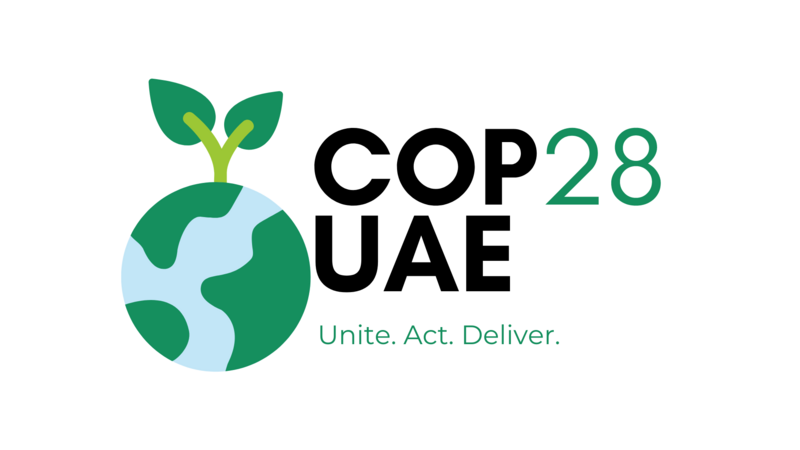COP 28 in Dubai: A Leap Forward in Climate Action
Last week's 28th Conference of the Parties (COP28) to the United Nations Framework Convention on Climate Change (UNFCCC), held in Dubai, United Arab Emirates, marks a significant milestone in the global effort to combat climate change. COP28's importance lies in its role as a platform for evaluating and enhancing climate action worldwide. The summit is particularly crucial for assessing progress towards the goals set by the Paris Agreement, which aims to limit global temperature rise to well below two °C, preferably to 1.5°C, above pre-industrial levels.
This year's COP28 gathered over 60,000 participants, including world leaders, industry experts, youth activists, indigenous community representatives, and journalists. The conference serves as a reality check, offering a "Global Stocktake" on the progress in addressing climate change and determining the extent of course correction required. The increasing severity of climate-related issues, such as record-breaking global temperatures and the alarming reduction of Antarctic sea ice, underscores the urgency. The deteriorating health of our planet and the well-being of humanity are at stake, with climate change disproportionately affecting the most vulnerable populations worldwide.
COP28 was expected to be a turning point in climate action, focusing on implementing more robust measures. This involves a 45% reduction in greenhouse gas emissions by 2030 compared to 2010, achieving net-zero emissions by 2050, transitioning from fossil fuels to renewable energy, and increasing investments in climate adaptation and resilience. Financial commitments to support developing countries were also a key focus, with the operationalization of the "loss and damage" fund, agreed upon at COP27, playing a critical role in delivering climate justice.
The United Arab Emirates, as the host country, played a pivotal role in leading the conference. Dr. Sultan al-Jaber, the Minister of Industry and Advanced Technology for the UAE, presided over the negotiations, emphasizing energy transition, climate finance, prioritizing people and nature, and ensuring inclusivity in climate action.
Although the main agenda of COP28 covered a wide array of climate-related topics, the impact of plastic production on climate change also emerged as a significant concern.
A high-level side event co-sponsored by the Government of Rwanda and the French Ministry of Ecological Transition highlighted the intrinsic connection between plastics and climate crises. The expansion of primary plastic production is identified as a significant driver of carbon emissions. Projections suggest that 2040 plastic production could account for as much as 19% of the carbon budget under the 1.5°C Paris Agreement target. This alarming statistic is primarily attributed to the production of primary polymers and their conversion into products, contributing to around 90% of the lifecycle emissions of fossil-fuel-based plastics. In 2023, new research warned of a substantial increase in mismanaged plastics and a more than 60 percent rise in greenhouse gas emissions from the plastic system by 2040 without effective global measures.
The United Nations Environment Programme (UNEP) emphasized the need to end reliance on fossil fuels, including in the plastics industry. It was pointed out that business-as-usual growth in plastics could consume up to 20% of the carbon budget for 1.5°C by 2040. The detrimental impact of plastic pollution on ocean and coastal ecosystems, which are crucial for carbon storage and climate resilience, was also highlighted. With around 80% of all plastic ending up in the oceans and plastic production projected to triple by 2060, the situation presents a dire threat to the environment and climate resilience.
A special event focusing on a Plastic Free Pacific at the Moana Blue Pacific Pavilion underlined the gravity of the issue in the Pacific region. Plastic waste is a crucial driver of pollution, threatening marine, terrestrial, and aerial ecosystems. It was noted that plastic pollution not only harms Pacific communities, ecosystems, and food security but also contributes to climate change through greenhouse gas emissions. The UN Environment Assembly's resolution to develop an international legally binding instrument on plastic pollution, covering the entire life cycle of plastics, represents a significant step toward addressing the global plastic pollution crisis. This initiative aligns with regional efforts in the Pacific, where the impacts of plastic pollution are particularly pronounced. The discussions at COP28 emphasized the need for a paradigm shift to end plastic pollution, especially in marine environments, effectively, and highlighted the critical link between fossil fuel use and plastic production.
This year’s summit marked a pivotal point in the history of international climate negotiations, as it concluded with groundbreaking decisions that could shape the future of our planet.
For the first time in the 28-year history of these conferences, the world nations collectively agreed to initiate a transition away from fossil fuels. This agreement is not just a symbolic gesture but a clear directive enshrined in the summit's final document. The importance of this consensus cannot be overstated, as it acknowledges fossil fuels as the main driver of climate change and sets a path for reducing their dominance in our energy systems.
Adding to this momentum, over 100 countries have endorsed a significant increase in their reliance on renewable energy sources. This move aims to triple the use of renewables, demonstrating a global commitment to shift away from the traditional fossil fuel-based energy framework. This shift is not merely a change in energy sourcing; it represents a transformation in how we think about and interact with energy in our daily lives.
Perhaps the most striking outcome of COP 28 is the collective acknowledgment that we are witnessing the "beginning of the end" of the fossil fuel era. The agreement reached in Dubai lays a solid foundation for a rapid, equitable, and just transition towards a more sustainable future. This involves deep cuts in emissions and a scale-up in finance to support climate change mitigation and adaptation efforts. The conference closed with a sense of global solidarity, as negotiators from nearly 200 countries came together to make these ambitious commitments.


